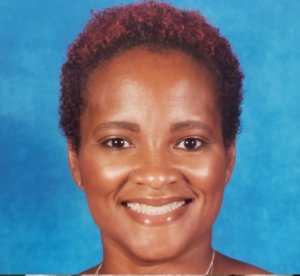by Tonekia L. Phairr
As we start the new school year, many educators across the country are feeling anxious and uncertain about what is in store for them. Many of us are experiencing a loss of control and security, unlike anything we have felt before. Whether we are returning to our school buildings or beginning the school year online, we want to know exactly what is expected of us and what we should expect from our students. This unprecedented level of uncertainty, it is what I like to refer to as the “unplanned disruption.”
I know it seems strange to call it an unplanned disruption, but that is exactly what has happened. Do you remember entering your classroom back in March and being told at the end of the day that you will be working remotely for an unplanned and indefinite period of time? I think teachers are typically prepared for unplanned things like pep rallies and safety drills, but while working from home with no clear indicator of when school will resume in a normal fashion, teachers became overwhelmed. Then, you watched and waited and taught online and tried to find some sense of normalcy. And then you heard the devastating news that the school year would not continue as normal and we were to finish the year remotely. You watched as disappointment ran through your community, affecting your colleagues as well as your students and their parents. You watched as seniors lost the opportunities to have their final memories of high school. You watched as college-aged students were told to move off campus immediately. You watched and yet you were expected to remain strong for your students. You watched because you had no other choice, until the realization set in and you understood that you were at a loss too.
Gone are the feelings of security that your schools and classrooms offered. Gone are the opportunities to form meaningful relationships with students. Gone is the fellowship and camaraderie of seeing colleagues or enjoying the simple things like a shared lunch period. It was the little things that we took for granted—seeing people smile or hugging someone. And now, as the new school year is approaching (or for many of us, it has already started), you are now entrenched into this unplanned disruption. District leaders are forced to make the hard decisions and think about the safety of their staff and students. Do we start the new year in the classroom? Do we return to remote learning? How do you enforce social distancing? If I am a parent, how do I feel about sending my own kids back to school? Will I be safe? Once the final decision was made, we had to realize that no matter what, everyone would not be pleased. It seems like there has never been so much uncertainty in education.
We are now confined to the walls of our offices, homes, and/or classrooms. While trying to manage the everyday duties and responsibilities, educators are very much in need of social and emotional support. They need that support from administration and their respective school districts. This support is important because we are afraid. We want to teach. We want to be safe. We want to do what we have been called to do. We are just unsure of how to deal with our emotions and deal with the unplanned disruption that has transformed education.
So, how do educators remain resilient during these trying times? First, it is important to understand that this is not the first occurrence of a disruption in education. In the 1980s, we saw the introduction of new technology and suburban flight. The 1990s brought us the internet, websites, and distance learning. Since the beginning of the 2000s, we have seen smartphones, social media, political scrutiny, and drastic changes in curriculum due to standardized testing. What does this mean during the COVID-19 era? It means that like those who pioneered before us and taught through the 1980s, 1990s, and the beginnings of the 2000s, we cannot give up. We cannot quit. We will have to become comfortable with being uncomfortable. Yes, I know that it is an oxymoron, but it is necessary in order to embrace the new reality of our situation. The reality is that we are ALL in this together! We can get through this because every day we wake up, get dressed, and teach. We are doing the job of heroes. Although it can and will get hard, remember that you have been called to this. YOU are essential!
For more advice on the 2020-21 school year, check out this article about the need for teachers to take time to recharge this summer.

Tonekia L. Phairr started working in Fulton County in 2010, where she served as the Small Learning Communities Coordinator and the Coordinator for Advanced Learning at Westlake High School. For the past five years, she has worked at Cambridge as a classroom teacher and then transitioned into administration serving as the testing coordinator and AP® coordinator.
 Help
Help